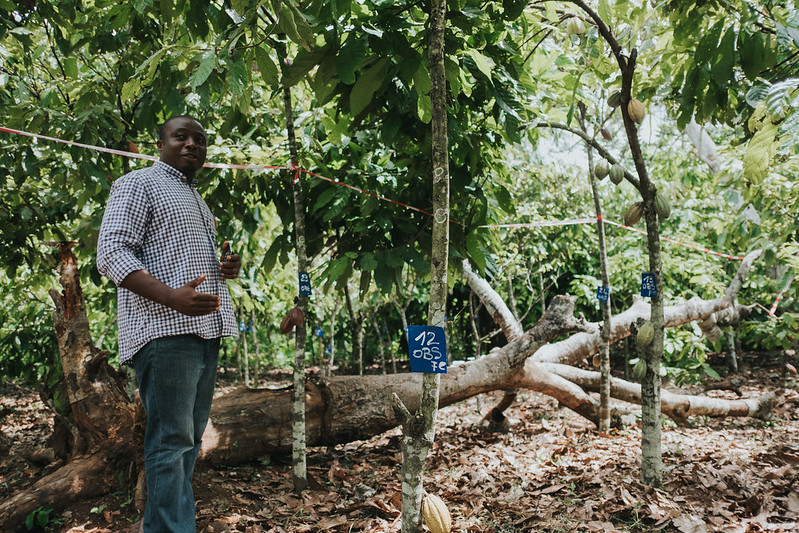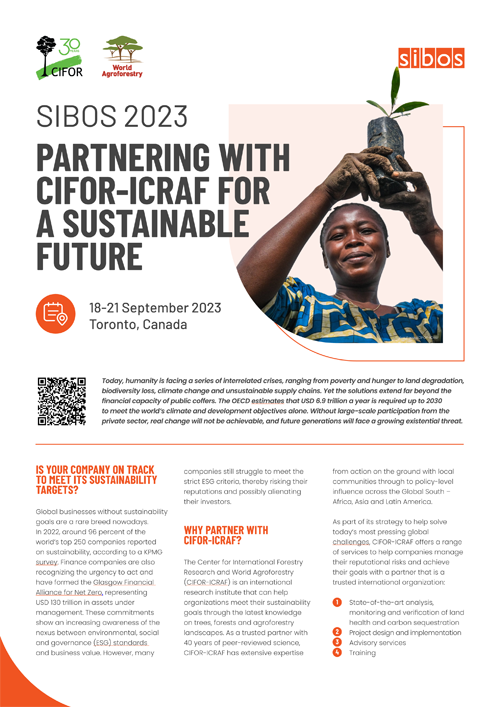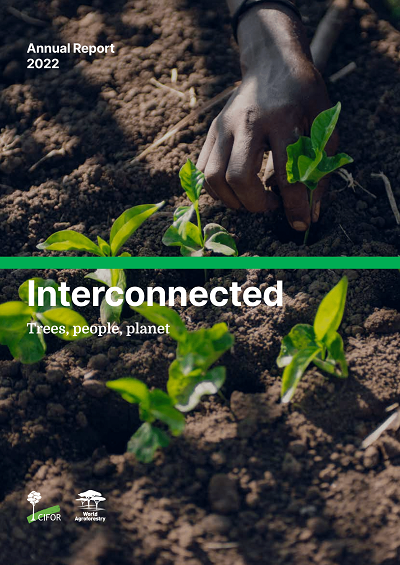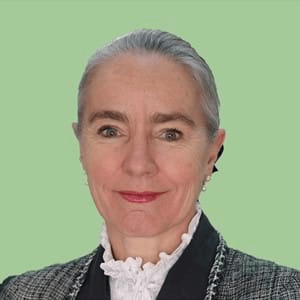
Today, humanity is facing a series of interrelated crises, ranging from poverty and hunger to land degradation, biodiversity loss, climate change and unsustainable supply chains. Yet the solutions extend far beyond the financial capacity of public coffers. The OECD estimates that USD 6.9 trillion a year is required up to 2030 to meet the world’s climate and development objectives alone. Without large-scale participation from the private sector, this funding won’t be achievable, and future generations will face a growing existential threat.
Book a meeting with us at SIBOS
Is your company on track to meet its sustainability targets?
Global businesses without sustainability goals are a rare breed nowadays. In 2022, around 96 percent of the world’s top 250 companies reported on sustainability, according to a KPMG survey. Finance companies are also recognizing the urgency to act and have formed the Glasgow Financial Alliance for Net Zero, representing USD 130 trillion in assets under management. These commitments show an increasing awareness of the nexus between environmental, social and governance (ESG) standards and business value. However, many companies still struggle to meet the strict ESG criteria, thereby risking their reputations and possibly alienating their investors.
Why partner with CIFOR-ICRAF?
The Center for International Forestry Research and World Agroforestry (CIFOR-ICRAF) is an international research institute that can help organizations meet their sustainability goals through the latest knowledge on trees, forests and agroforestry landscapes. As a trusted partner with 40 years of peer-reviewed science, CIFOR-ICRAF has extensive expertise from action on the ground with local communities through to policy-level influence across the Global South – Africa, Asia and Latin America.
As part of its strategy to help solve today’s most pressing global challenges, CIFOR-ICRAF offers a range of services to help companies manage their reputational risks and achieve their goals with a partner that is a trusted international organization:
- State-of-the-art analysis, monitoring and verification of land health and carbon sequestration
- Project design and implementation
- Advisory services
- Training
Case studies: CIFOR-ICRAF partnerships with private companies

Managing water resources in Indonesia
Danone – The French food and beverage maker collaborated with CIFOR-ICRAF to formulate impactful initiatives aimed at ensuring a reliable water supply within the Rejoso watershed where they operate in East Java, Indonesia. The initiative involved the creation of co-investment schemes, a revival of a multi-stakeholder partnership forum at the district level, and sustainable financing schemes involving the government, the company, NGOs, and local farmers. CIFOR-ICRAF supported designing and piloting evidence-based strategies for integrated watershed and water resource management across the watershed’s upstream, midstream, and downstream areas. The enhancement may boost Danone’s profitability by ensuring a greater water supply for its bottled mineral water facilities.

Transforming cocoa bean sustainability in West Africa
Barry Callebaut Group – The Swiss company, which supplies the global food and beverage maker Unilever with chocolate and cocoa, hired CIFOR-ICRAF to improve the sustainability of its cocoa bean supply in West Africa as a significant portion of the cocoa beans it sourced came from protected forests. Barry Callebaut invited CIFOR-ICRAF to develop a proposal for the remediation of cocoa and forest landscapes degradation through agroforestry. The investment was part of the engagement of Unilever to process deforestation-free cocoa. The project aimed to reduce the risk associated with the unsustainable cocoa bean supply and fulfill the company’s commitments to climate change mitigation and deforestation-free supply chains.

Scaling oil palm agroforestry in Brazil
Natura – The Brazilian cosmetics company invited CIFOR-ICRAF in 2016 to co-lead the project Oil Palm Diversification: Reconciling conservation with livelihoods, with funding from USAID/Global Development Alliance, which focused on private-sector initiatives for scaling sustainable commodity production. CIFOR-ICRAF led the co-design of diversified oil palm technological options tailored to different farmer contexts in northeast Pará in the eastern Brazilian Amazon region. The project was instrumental in Natura’s decision to scale oil palm agroforestry, providing scientific inputs on agroforestry options best suited to different local contexts through a network of demonstration sites and landscape-level scaling studies. Natura is rolling out this strategy in northeast Pará, aiming to expand to 2,000 hectares of oil palm agroforestry.
CIFOR-ICRAF: Facts & figures
- More than 2,000 projects completed in 92 countries
- 193 active partnerships to develop and implement transformative solutions
- More than 25,000 publications and knowledge products available online
- Headquarters in Indonesia and Kenya, offices in 25 countries, and more than 700 staff working in 60 countries across the Global South


























